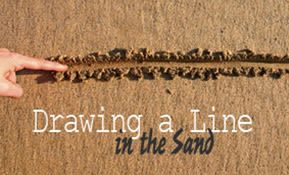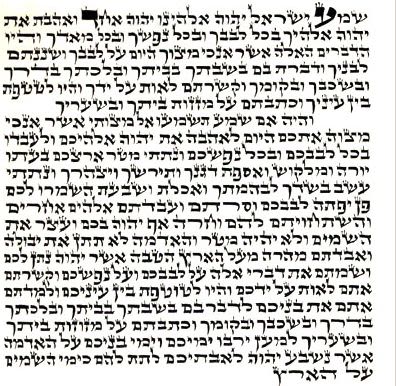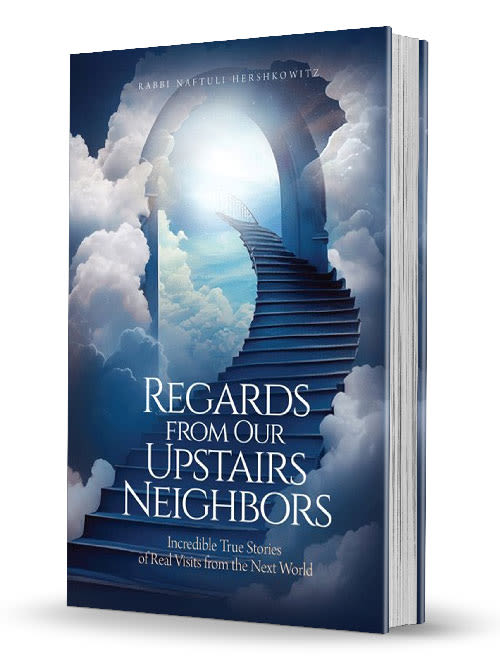What does it take to become great? Usually whatever we don’t have. We tell ourselves that if only we were a little smarter, taller, skinnier, or wealthier; we could really achieve our goal in life. It always seems that if we only had the (insert positive trait here) of our neighbor, we would be unstoppable. Yet this week’s parsha teaches us something else entirely; talent and position have very little to do with how great we become. The tools for spiritual growth are much closer than we might think! <!–D(["mb","
n
n
Parsha Balak details the escapades of Bilaam, the great prophet of the nations. Hired by King Balak of Moab to curse the Jews, Bilaam unsuccessfully attempts to bring Divine wrath upon Klal Yisroel. His plans are foiled by the Almighty, and instead of cursing the Jewish people, Bilaam utters forth beautiful praises and blessings that we recall and recite daily.
n
n
With this narrative aside, a question looms. Throughout our history, our great strength has been in our blessings of prophecy and spirituality. From Avraham Avinu to Rebbe Nachman and beyond, klal yisroel’s special gift is our connection with Hashem. Why would G-d bestow the ability of prophecy, our great gift, to a member outside the tribe?
n
n
Ramban explains that Hashem decreed that the gentile nations should have a prophet that was comparable to Moshe Rabbaynu. This way, the non-Jewish nations cannot claim that if they had someone who would tell them the will of G-d, they would have been as righteous as Israel. Though Bilaam did have comparable spiritual potential to Moshe, Bilaam was only able to achieve prophecy through intense concentration and struggle. The Torah explains that what distinguished Moshe Rabbaynu from all other prophets was that G-d knew Moshe face to face (Devarim, 34:11).”,1]);//–>
Parshat Balak details the escapades of Bilaam, the great prophet of the nations. Hired by King Balak of Moab to curse the Jews, Bilaam unsuccessfully attempts to bring Divine wrath upon the Jewish nation. His plans are foiled by the Almighty, and instead of cursing the Jewish people, Bilaam utters forth beautiful praises and blessings that we recall and recite daily, to this very day.
With this narrative aside, a question looms.
Throughout our history, our great strength has been in our blessings of prophecy and spirituality. From our father, Avraham (Abraham) to Moshe (Moses) to
Rebbe Nachman to the Chofetz Chaim and beyond, the Jewish nation’s special gift is their connection with the Almighty. Why would God bestow the ability of prophecy, our great gift, to a member outside the tribe?
Ramban explains that Hashem decreed that the gentile nations have a prophet comparable to Moshe, the greatest prophet of all times. This way, the non-Jewish nations could not claim that if they had had someone who had told them the will of God, they would have been as righteous as Israel. Though Bilaam did have spiritual potential that was comparable to that of Moshe, Bilaam was only able to achieve prophecy through intense concentration and struggle. The Torah explains that what distinguished Moshe from all other prophets was that God knew Moshe face to face (Devarim, 34:11).<!–D(["mb"," Rashi explains that Moshe had such a close relationship with the Almighty that he could speak to Him whenever he wanted.
n
n
Yet if Bilaam was on the same level of Moshe Rabbaynu, why was he not also able to communicate with G-d face to face? On top of that, why would Bilaam wish to curse the Jews? Surely someone who could connect with the Almighty could and should recognize the special relationship that exists between Israel and her Creator. The legacy of Bilaam and the amazing contribution of Moshe can be seen through comparing the two great prophets.
n
n
Bilaam utilized His connection to G-d to pursue his own interests, and the interests of his employers. He questioned G-d’s decisions, and acted however he wanted, using his gift of prophecy as a potential weapon against the Jewish people. Moshe Rabbaynu, on the other hand, was the opposite (Jake, – say this differently…. acted very differently? behaved in a different manner? conducted himself …approached his relationship from a completely different perspective?????).. Moshe Rabbaynu channeled his spiritual gifts into bringing the will of the Almighty into the world. His incredible relationship with Hashem did not come from his inherent spiritual ability, but rather his tremendous humility. In Rav Chaim Volozhiner’s commentary on Pirkei Avot, we learn that hypothetically anyone could achieve Moshe Rabbaynu’s level of prophecy if one could achieve his level of humility.”,1]);//–>
Rashi explains that Moshe’s relationship with the Almighty was so close, that he was able to speak with Him whenever he wanted.
Yet if Bilaam was on the same level as Moshe, why wasn’t he also able to communicate with God face to face? Also, why did Bilaam want to curse the Jews? Surely someone who could connect with the Almighty could and should recognize the special relationship that exists between Israel and her Creator. The legacy of Bilaam and the amazing contribution of Moshe can be seen through comparing the two great prophets.
Bilaam utilized His connection to God to pursue his own interests, and the interests of his employers. He questioned God’s decisions, and acted however he wanted, using his gift of prophecy as a potential weapon against the Jewish people. Moshe, however, channeled his spiritual gifts into bringing the will of the Almighty into the world. His incredible relationship with Hashem was not a result of his inherent spiritual ability, but rather of his tremendous humility.
Rabbi Chaim Volozhiner points out that Moshe’s level of prophecy was a result of his level of humility.<!–D(["mb"," Torah is like water, flowing from the heights and spreading out to the depths. He who is able to make himself the lowest is the one who can absorb the greatest amount of holiness.
n
n
Humility, the most exalted of human characteristics, is a rather complicated idea. It is not synonymous with weakness or inferiority. Rather, it is the perspective that we can learn from anyone. Humility means being able to take on the yoke of Heaven, and lower our own needs before the wishes of the Almighty. By lowering ourselves, we become greater. This is the key to spiritual growth. Spiritual potential has nothing to do with one’s inherent abilities. No matter how rich, poor, smart, unintelligent, tall, thin, etc one is, the path to greatness lies in tackling our egos and conquering the arrogance that lies inside us.
n
n
We must never assume we are great; we must never think that we have reached a level where we no longer have to try. Rebbi Nachman teaches us, “In this world where everything is hidden, appearances may be deceptive. Only G-d, who knows our innermost hearts, knows who is great. We might imagine that we are very near the goal, when we are actually very far from it. On the contrary, we might believe ourselves lower down the ladder when we only have one more rung to climb to cross the threshold of victory.” Humility, and always striving to increase our spiritual growth, is the only way we can achieve our potential.”,1]);//–>Torah is like water, flowing from the heights into the depths. He who is able to make himself the lowest is the one who can absorb the greatest amount of holiness.
Humility, the most exalted of human characteristics, is not synonymous with weakness or inferiority. Rather, it is the ability and desire to learn from anyone. Humility means being able to take on the yoke of Heaven, and lower our own needs before the wishes of the Almighty. By lowering ourselves, we actually become greater. Spiritual potential has nothing to do with one’s inherent abilities. No matter how rich, poor, smart, unintelligent, tall, thin, etc. we may be, the path to greatness lies in tackling our ego and conquering our arrogance.
We must never think that we have reached a level where we no longer have to try. Rebbi Nachman teaches us, “In this world where everything is hidden, appearances may be deceptive. Only God, who knows our innermost hearts, knows who is great. We might imagine that we are very near the goal, when we are actually very far from it. On the contrary, we might believe ourselves lower down the ladder when we only have one more rung to climb to cross the threshold of victory.” We can only achieve our potential with humility and through continually striving to grow.<!–D(["mb","
n
n
Bilaam’s raw ability as a prophet did not make him a great man. Moshe Rabbaynu gained all his spiritual potential from his humility, and thus was able to bring G-d’s will into the world in a way unparallel ever since(Jake: say this differently) (Devarim 34:10). We have the ability to use our talents and gifts in two ways; to create the world as we would like it, or as G-d would like it. If we manage to humble ourselves, we not only further the goal of creation and build a better world, but we perfect and polish ourselves in the process. May we all have the strength to stop worrying about those outside factors that we lack, and rather focus inward and cultivate the amazing potential that lies inside each of us.
n
Carolyn Sladnick














Tell us what you think!
Thank you for your comment!
It will be published after approval by the Editor.